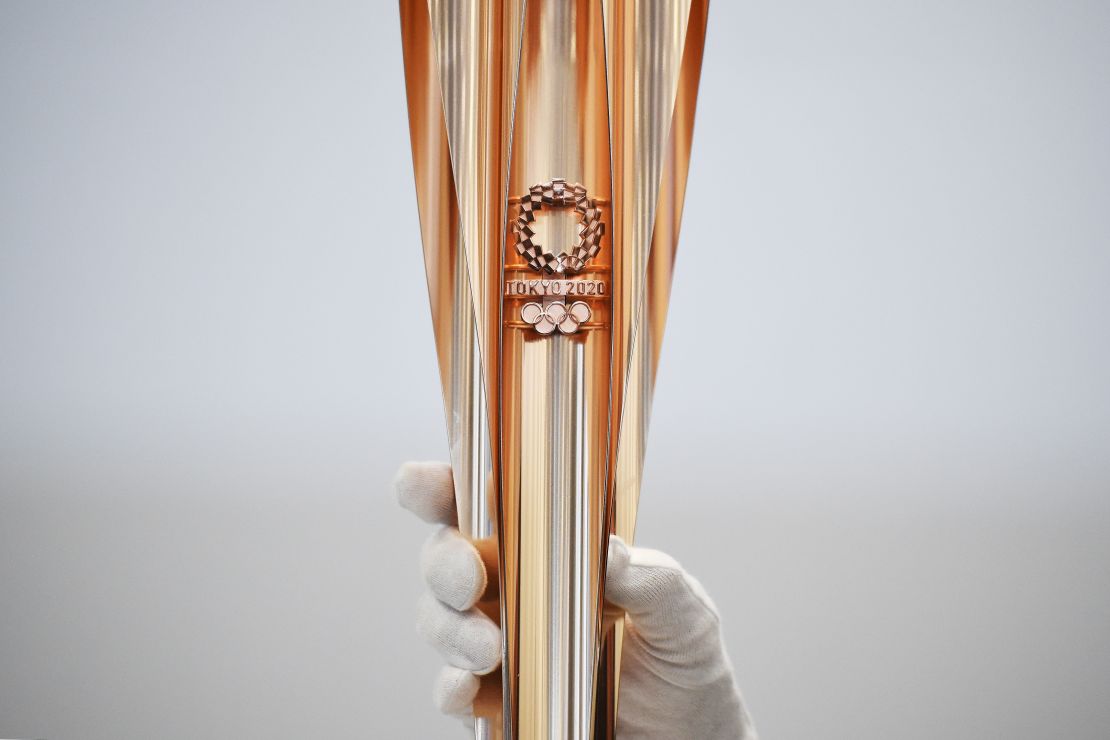The deadly Wuhan coronavirus outbreak could impact Japan’s preparations for the Tokyo 2020 Olympics this summer, a senior organizer has warned.
The virus has infected over 28,000 people across more than 25 countries and territories, and claimed more than 560 lives – the vast majority of cases and all but two deaths in mainland China. At least 45 cases have been reported in Japan, including 20 people on board a cruise ship quarantined in Yokohama Bay.
“I am extremely worried that the spread of the infectious disease could throw cold water on the momentum toward the Games,” said Toshiro Muto, chief executive of the Tokyo Olympic organizing committee, according to Japanese public broadcaster NHK. “I hope that it will be stamped out as soon as possible.”
Prime Minister Shinzo Abe stated Monday that the Games would proceed as planned.
However, the Games are due to open in less than six months, and Muto’s comments came as Japanese health officials raced to check passengers and crew aboard the Diamond Princess cruiseliner, which docked off Yokohama port Monday.

The Princess Cruises ship was placed in lockdown at the Japanese port, with 3,700 people quarantined on board after it was revealed that an infected passenger flew into Tokyo and spent a few days on the ship.
So far 20 people on the ship have been confirmed with the coronavirus.
There are still more than 100 samples awaiting test results. A total of 2,666 guests and 1,045 crew members were on board, Princess Cruises said in a statement earlier this week.
On Wednesday, the Japanese defense ministry docked a quarantine ferry at the Maritime Self-Defense Force base in Yokosuka, central Japan, The 17,000-ton ferry has 94 rooms and will be ready to accommodate Japanese returnees from China, if needed.
Olympic jitters?
Despite the fears over the coronavirus outbreak, the fanfare around Tokyo 2020, which is due to officially begin on Friday, July 24, is well underway.
Tokyo’s new National Stadium was inaugurated last December and the Olympic torch relay is scheduled to kick off from Fukushima prefecture on March 26.
On Monday, Abe dispelled concerns that the Summer Olympics would be canceled after false rumors circulated online.
“We will take appropriate measures so that the preparation for the Olympic games will proceed without affecting them,” Abe told a parliamentary committee.

Japan has struggled to recover from three recessions in the past eight years, the second of which was caused by the devastating earthquake and tsunami that hit northeastern Japan in March 2011. Officials hope to use the Tokyo 2020 Olympics to attract visitors and promote Japanese business and innovation.
The government has also set an ambitious goal of attracting up to 40 million foreign visitors to the country this year in a bid to bolster the economy. That goal already looks threatened after China banned outbound group travel as part of its battle to stop the spread of the coronavirus. Japan received approximately 9.6 million visitors from China in 2019, accounting for a third of foreign tourist expenditure in the country.
The Games themselves are expected to welcome up to 920,000 visitors a day, according to a report published by the Bank of Japan. So far, Olympic organizers have continued to stress precaution will be taken to secure the safety of athletes and visitors.
Officials announced on Thursday that they had established an internal novel coronavirus countermeasures task force, headed by Muto. The task force would share information between relevant bodies on the status of the outbreak, Muto told reporters.
“We need to make sure the public, the athletes and the stakeholders feel safe and secure,” Muto said. “We have to be objective and cool-headed as we don’t want to instigate a sense of fear.”
The organizers also stressed the need to put the virus into perspective, given the World Health Organization (WHO) had not designated the coronavirus outbreak as a pandemic.

Precautions taken
While face masks have become scarce nationwide, Japan has started to take a number of precautions to overcome and prevent the spread of the virus.
Last Friday, Japan’s National Institute of Infectious Diseases announced it had succeeded in isolating and cultivating the virus from a Japanese person confirmed to be infected. The institute will use the isolated virus to start developing a vaccine and a test kit capable of quick diagnosis, though the process could take months.
Japanese companies have adopted the practice of encouraging their employees to work from home to prevent exposing them to the virus on congested public transport and in offices.
Rakuten, a Japanese e-commerce company, has told employees who have recently returned from China to work from home for two weeks, according to public broadcaster NHK. It takes 14 days to cover the virus’ incubation perioid.
The company will also allow pregnant women to telework, regardless of whether they have been to China, and postpone business trips to and from the country.




















